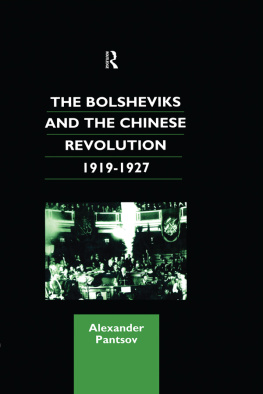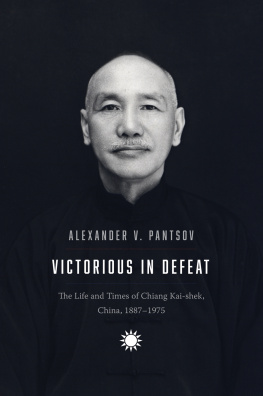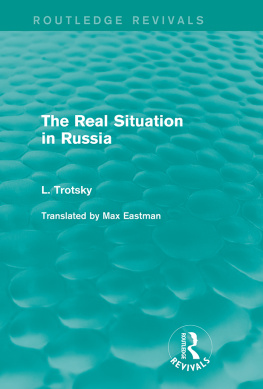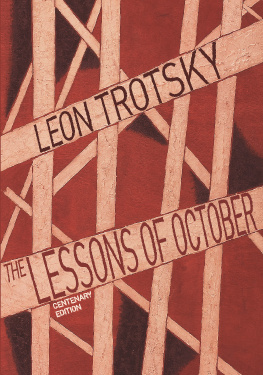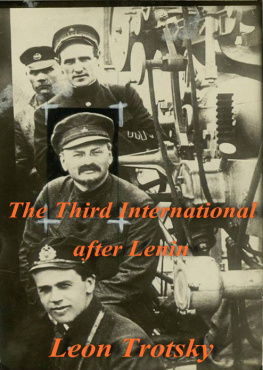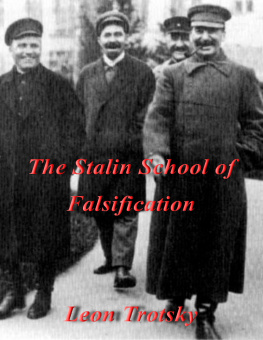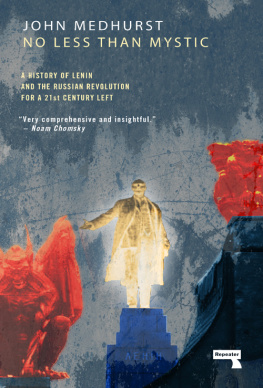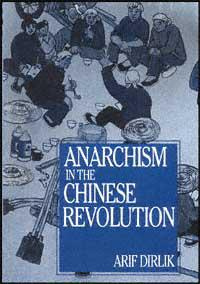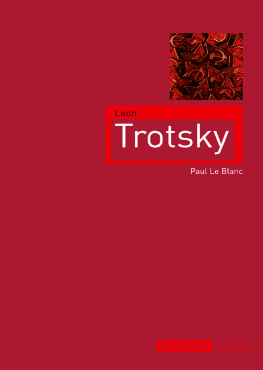Chapter 1
Communism in Russia as a Socio-cultural Phenomeno
By the end of the Russian revolution of 1905-07, Marxism, introduced into Russia in the 1860s, had given birth to three main trends of Russian Communism. These were expressed by Georgii Valentinovich Plekhanov, Vladimir Ilich Ulyanov (Lenin), and Leon Davidovich Bronshtein (Trotsky).
The Plekhanovists, who are better known as the Mensheviks (those who constitute the Minority)A bourgeois-democratic regime would make it possible for the Russian proletariat to wage the struggle for socialism with incomparably greater chances of success.
On the other hand, Leninism (or Bolshevism, i.e., the teaching of those who constitute the Majority) as it crystallized at the beginning of the twentieth century can be summarized as follows: In terms of its class position, the bourgeoisie of Russia is not capable of bringing its own revolution to completion, yet conditions are not yet ripe in Russia for a socialist revolution. Consequently, the revolutionary process must still first pass through the stage of bourgeois-democratic revolution, but the latter will take the form of a peoples revolution under the hegemony of the proletariat. At the same time, a decisive victory of the revolution over tsarism will not lead to a dictatorship of the proletariat but to a revolutionary democratic dictatorship of the proletariat and the peasantry that is, power shared jointly by these two classes. The dictatorship of the workers and peasants will pull the country out of its backwardness [srednevekove] in favor of a broad and rapid, European rather than Asian, development of capitalism; strengthen the proletariat in the cities and the countryside; and open possibilities for bringing the revolution to the socialist stage. The victory of the bourgeois-democratic revolution in Russia will generate a powerful impetus toward socialist revolution in the West, and this latter will not only safeguard Russia against the danger of restoration but also enable the Russian proletariat to seize power in a relatively short time.
Trotsky, who created his own faction inside Russian Social Democracy, developed the following theses. Since the bourgeoisie of Russia is indeed incapable of leading the revolutionary movement, the complete victory of a democratic revolution in Russia is conceivable only in the form of the dictatorship of the proletariat, drawing on the peasantry for support. Only a workers government supported by the peasantry is capable of dealing with the whole complex of problems facing the revolution. Neither a dictatorship of the bourgeoisie nor even a revolutionary democratic dictatorship of the proletariat and the peasantry is capable of accomplishing this. A dictatorship of the proletariat, which will inexorably accomplish not only socialist but also, in passing, democratic tasks, will at the same time give a powerful impetus to the international socialist revolution. The victory of the proletariat in the West will protect Russia against restoration of the bourgeoisie and ensure the triumph of socialism there.
Trotskys central thesis, therefore, was the implementation of the world-wide permanent revolution ignited by the socialist overturn in Russia. He argued the notion not only of the possibility but also the inevitability of the victory of the socialist revolution in one country and in a country that was backward in socio-economic and political terms, the weakest link in the world capitalist system. For the first time he presented a Here is what he wrote:
In a country that is more backward economically the proletariat may come to power earlier than in an advanced capitalist country The notion that the dictatorship of the proletariat automatically depends on a countrys technological forces and resources constitutes a prejudice of extremely oversimplified economic materialism. Such a view has nothing in common with Marxism. In our opinion, the Russian Revolution provides the kind of conditions under which power can (and with the victory of the Revolution must) come into the hands of the proletariat.
At the same time Trotsky in no way denied the revolutionary role of the peasantry as an ally of the proletariat. This point should be stressed, given that his ideas in this respect were intensively falsified in Soviet historiography. In fact Trotsky overestimated the role of the peasantry at the time because, according to his concept (as set forth in Results and Prospects) , it would seem that the peasantry in Russia was already willing in 1905-06 to support a proletarian dictatorship. Apparently, he also underestimated something quite different the ability of certain strata of the peasantry to attain political independence. For this reason he considered it excessive for the proletariat to permit the peasantry, that is, the corresponding peasant parties, to exert influence on its government policies even temporarily, while the democratic tasks of the revolution were being dealt with. In doing so, however, he by no means ruled out on the contrary, he considered it essential the idea of allowing revolutionary representatives of non-proletarian social groups to become part of the workers government. A sound policy will compel the proletariat to involve influential leaders of the lower middle class [meshchanstvo], the intelligentsia, or the peasantry in the government, he wrote. The whole question is who will give content to governmental policy? Who will rally a uniform majority in it?.. And when we talk about a workers government, we are thereby answering that hegemony will belong to the working class.
Therefore, of all main Russian Marxist tendencies that had formed by that time in the Russian Social Democratic Labor Party, it was Trotskyism that was the most extreme. However, Lenins concept was quite radical as well. If we leave aside for a moment the intensive polemic taking place in the pre-February (1917) period between Lenin and Trotsky, we can see that the both doctrines indeed shared many features. Neither Lenin nor Trotsky believed in the revolutionary potential of the Russian bourgeoisie. This led them to the conclusion that from the very beginning the revolution in Russia would go beyond the limits of classic bourgeois democracy; how far beyond is another question. They also shared the idea that the revolutionary process in Russia would be supported by a series of socialist
The implementation of Lenins concept in practice would eliminate any discord between the Bolsheviks and Trotsky. Despite Lenins assurance, it would actually lead to the same type of communist dictatorship expounded by Trotsky. The establishment of the democratic dictatorship of the working class and the peasantry was unlikely. First, because workers, the poor peasantry, paupers, and lumpens the social base of the Russian revolutionary left wing were not keen on any form of capitalism. On the contrary, they were led to the fight by sharply expressed anti-market feelings. It is hard to imagine how they would encourage a broad and rapid development of capitalism after having fought the bourgeoisie for hegemony in the revolution. Second, it is doubtful that the proletariat, which according to Lenin would have already had to establish its hegemony in the revolution, would share power with the peasantry.
The vulnerability of Lenins notion concerning the workers and peasants co-dictatorship was noticed by Trotsky himself in his polemics with the Bolsheviks:
We could, of course, call this government a dictatorship of the proletariat and the peasantry, a dictatorship of the proletariat, the peasantry, and the intelligentsia, or, finally, a coalition government of the working class and the petite bourgeoisie. The question will still remain, however: who will possess hegemony in the government itself, and, through it, in the country?
Of course, in practice hegemony would belong to the strongest and most active partner. It is clear that if the working class actually the Bolsheviks seized the leadership in the peoples revolution during its process, it would never reject its own state dictatorship.

